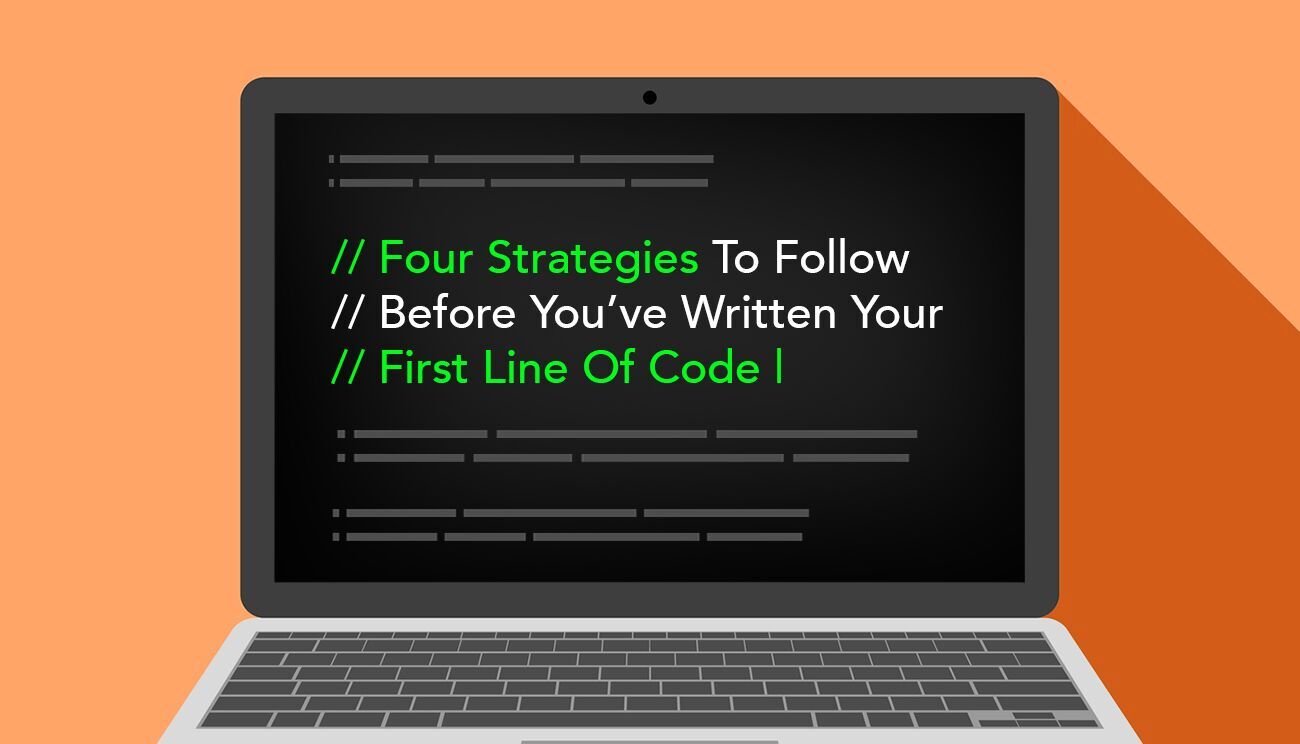It’s daunting to become a coder. There’s so much to learn and there appears to be a multitude of people who have been coding for years. Take heart, however, a full third of professional developers on Stack Overflow, which interviewed over 100 000 developers, only learnt to code within the past five years. Basically, it’s never too late to learn to code. But to help you prepare for your coding journey, here are some strategies to follow before you’ve even written your first line of code.
1. Operationalise Your Goals
This is an important initial step. Decide on your goals. Make them tangible and project-based. Hongkiat mentions these potential projects:
- Build a calculator using CSS and JavaScript. These languages are certainly worth learning, because they form a core part of a Full Stack Web Developer course.
- Make a responsive website using HTML, CSS and JavaScript. A responsive website is capable of responding to a user’s behaviour and environment based on screen size, platform and orientation.
- Practise your back back-end programming languages, such as PHP, Ruby and Python, by building a dynamic website. You can read more about the difference between front-end and back-end web development here.
- Using JavaScript, create a 2D breakout game.
2. Decide Which Programming Language You Want to Learn First
Your goal should help you decide which programming language you want to learn first. However, you may choose first to decide on the programming language and then set a goal for yourself.
It’s probably a good idea to start with something simple like HTML or CSS. Both are used frequently in the developer world. This graph, showing the most commonly-used programming languages, comes from the 2018 Stack Overflow Developer Survey.

Image Source: https://insights.stackoverflow.com/survey/2018/#technology
HTML and CSS are widely used and supported by all browsers, and you can still do cool projects with them like formatting your blog post or email, or creating CSS animations.
You might also consider learning Python. Python is probably the most used programming language in Data Science, a growing and popular field. It’s also a relatively easy language to learn, because it reads similarly to English.
3. Install the Correct Programs
This isn’t as simple as it sounds. Before you’ve written your first line of code, you need to install the right programs on your machine. There are a variety of options such as:
- Installing a simple code editor, which is a software package that has features that allow for writing code. You could choose between one of these three code editors for different operating systems: Notepad++ (a popular code editor for Windows), DroidEdit (a free app for writing code on your Android phone or tablet), and TextWrangler (a code editor for Macs).
- Using an Integrated Development Environment (IDE). This is more advanced than a code editor, because it incorporates other tools such as libraries, a compiler and a debugger. Examples of IDEs include Microsoft Visual Studio, NetBeans and Eclipse.
- Installing a Software Development Kit (SDK), which is a bundle of software tools that lets you create applications for specific platforms or frameworks – e.g. an app for an Android smartphone would use the Android SDK.
4. Find the Right Resources
There are many developer resources out there that programmers use when they get stuck. A good place to start is Stack Overflow, which attracts over 50 million developers on a monthly basis. You can ask your programming questions there, and you are almost guaranteed to have an avid user answer your question soon. Reddit Programming is also a good spot to bookmark and check out prior to writing your first line of code. You could also look at Experts Exchange, a paid site, and Quora, which is a Q&A sites on any topic. You will find that the developer and programming world has an incredible community of support through resources and forums like these.
In conclusion, once you’ve followed these four steps, you’ll be excellently positioned to start writing and learning coding. You may also want to consider enrolling for one of HyperionDev’s six-month Bootcamps in Web, Mobile or Software Development. You can try each of them out with a free trial.


